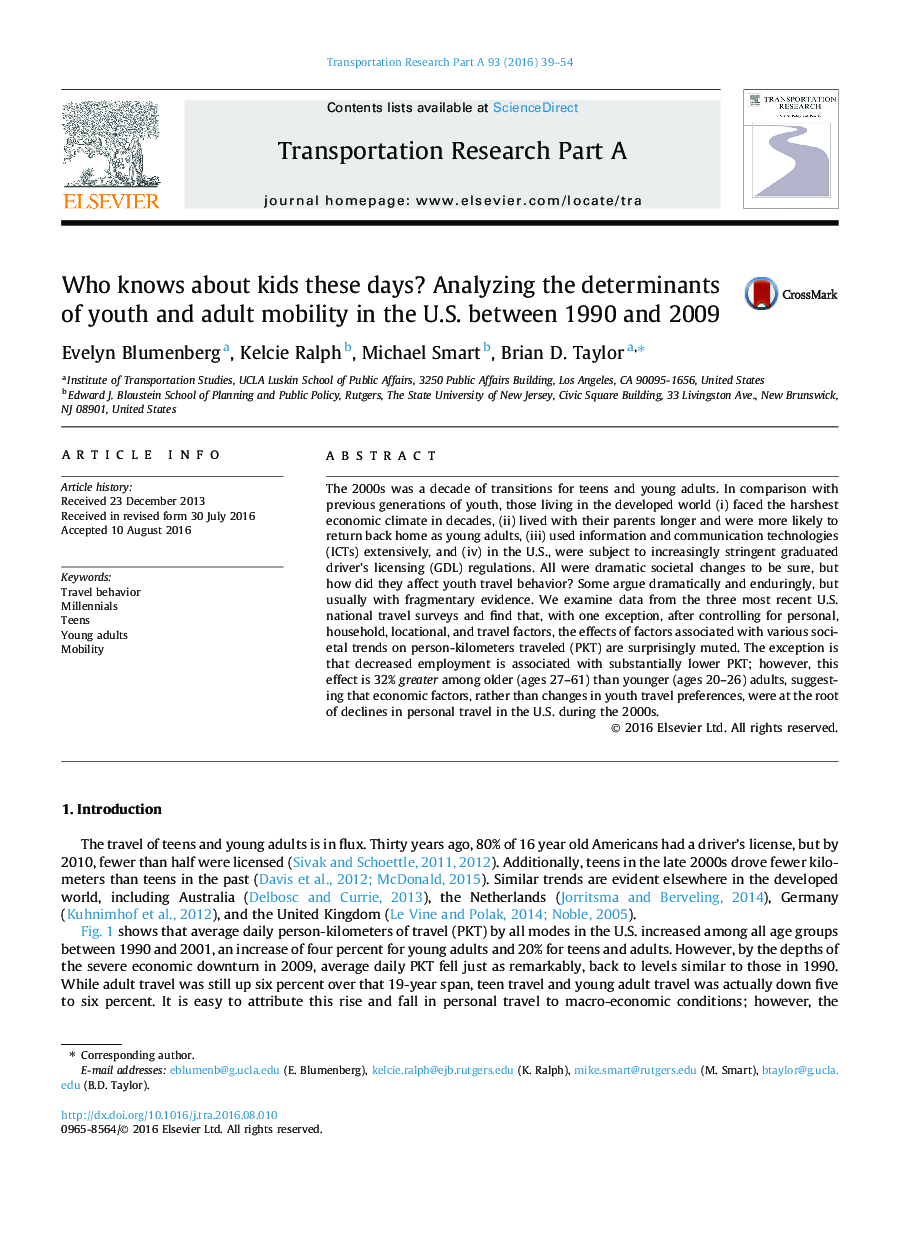| Article ID | Journal | Published Year | Pages | File Type |
|---|---|---|---|---|
| 4929099 | Transportation Research Part A: Policy and Practice | 2016 | 16 Pages |
Abstract
The 2000s was a decade of transitions for teens and young adults. In comparison with previous generations of youth, those living in the developed world (i) faced the harshest economic climate in decades, (ii) lived with their parents longer and were more likely to return back home as young adults, (iii) used information and communication technologies (ICTs) extensively, and (iv) in the U.S., were subject to increasingly stringent graduated driver's licensing (GDL) regulations. All were dramatic societal changes to be sure, but how did they affect youth travel behavior? Some argue dramatically and enduringly, but usually with fragmentary evidence. We examine data from the three most recent U.S. national travel surveys and find that, with one exception, after controlling for personal, household, locational, and travel factors, the effects of factors associated with various societal trends on person-kilometers traveled (PKT) are surprisingly muted. The exception is that decreased employment is associated with substantially lower PKT; however, this effect is 32% greater among older (ages 27-61) than younger (ages 20-26) adults, suggesting that economic factors, rather than changes in youth travel preferences, were at the root of declines in personal travel in the U.S. during the 2000s.
Related Topics
Physical Sciences and Engineering
Engineering
Civil and Structural Engineering
Authors
Evelyn Blumenberg, Kelcie Ralph, Michael Smart, Brian D. Taylor,
